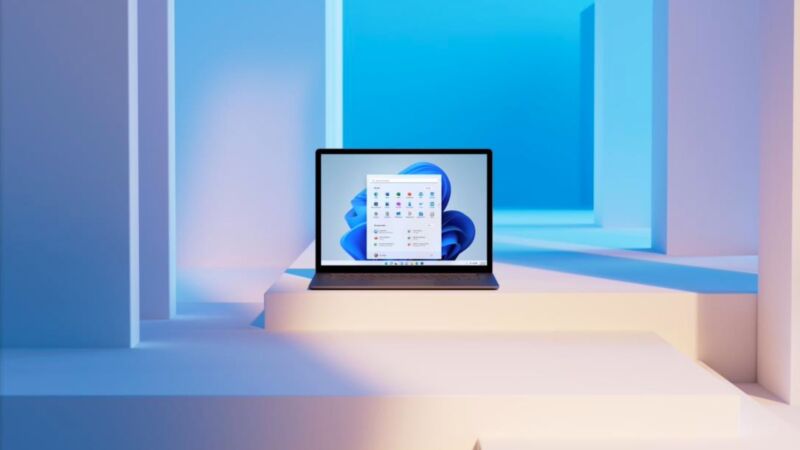
Microsoft is planning yet another big change to the way it updates Windows, according to a report from Windows Central. Rather than updating a single version of Windows for many years as it did with Windows 10, Microsoft plans to return to a schedule where it releases a new major version of Windows roughly once every three years, putting a hypothetical "Windows 12" on track for release at some point in the fall of 2024.
On the surface, this looks a lot like a return to the pre-Windows 10 status quo. 2006's Windows Vista was succeeded by 2009's Windows 7, 2012's Windows 8, and 2015's Windows 10. But the report says that Microsoft will continue to refine the current Windows release at a steady clip, with new feature drops (internally called "Moments") planned roughly once per quarter. We've already gotten a taste of that with Windows 11, which has evolved steadily throughout the year instead of saving all its big changes for the pending Windows 11 22H2 update.
When Windows 11 was released in October of 2021, Microsoft said that both Windows 11 and Windows 10 would receive major "feature update releases" once per year in the second half of the year. This was already a change from Windows 10, which received two of these updates per year. But Windows Central reports that Windows 11's 2023 feature update has already been "scrapped," suggesting that the big yearly update model could be going away for good.
Whatever the company is planning, it's not ready to announce it to the public right now. Reached for comment, a Microsoft spokesperson told us that the company "does not comment on rumors or speculation."
That leaves a bunch of big questions unanswered. If this change is coming, will there still be a "23H2" release of Windows for purposes of determining Windows 11's update life cycle? Will Windows 12 be a paid upgrade like older Windows versions, or will it be free to current Windows users like Windows 10 and Windows 11? What features, if any, will be maintained across multiple major Windows releases? What kind of features are included in "Moments," and which are held back for major releases?
There could be benefits to returning to more clearly delineated Windows releases; it’s an opportunity to make larger user interface changes or under-the-hood improvements while also benefitting from the extra user awareness and media attention that accompanies major updates. It's also a chance to change system requirements, ensuring that any system running Windows 12 has more capable hardware than one that runs Windows 11 (though the downside of that for users would be a further tightening of Windows 11's already restrictive requirements).
For third-party developers and IT administrators, on the other hand, the current plan sounds like the worst of both worlds: a continually shifting current version of Windows that's always being tweaked, plus a more-fragmented install base with big groups of users running one of three or four different Windows versions with different user interfaces and feature sets. IT admins could fall back on bad habits, skipping less-desirable versions of Windows (like 8 or Vista) while staying on "good" known-quantity versions (like XP or 7), missing out on meaningful new features and security upgrades in the process.
If Microsoft has more to share about its update plans for Windows 10 or Windows 11 going forward, it may do so when both operating systems' yearly feature updates are released later this year. Windows 11 22H2 has been developed in public in the Windows Insider testing channels and has already been fairly well documented. The company has said almost nothing about Windows 10 22H2, which may or may not actually add any user-noticeable features to the now-last-gen OS.
reader comments
242